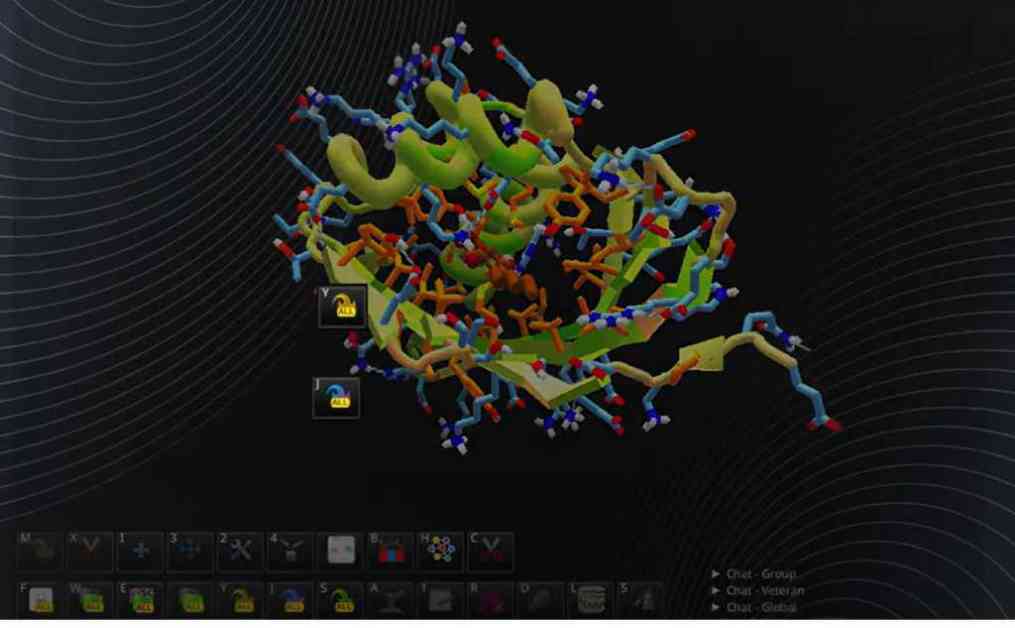Biochemist David Baker, along with researchers from Google’s DeepMind, was awarded the 2024 Nobel Prize in chemistry for their groundbreaking work. What you may not know is that a video game called Foldit played a crucial role in their success, and you can still be a part of this scientific journey today.
Developed by Baker and the University of Washington’s Institute for Protein Design, Foldit is an online puzzle game that allows players to design synthetic proteins. Initially created in 2008 to help determine the structure of existing proteins, the game evolved in 2019 to enable gamers to design entirely new proteins that had never been seen before.
Players are given the tools to create novel proteins by folding chains of amino acids into their correct shapes. These designed proteins are then tested by scientists to see if they are stable and functional. In one study, 146 proteins designed by Foldit players were tested in the laboratory, with 56 of them found to be stable and realistic. This groundbreaking discovery showcased the potential of crowdsourcing scientific solutions through gaming.
Today, Foldit continues to push the boundaries of protein research, with new puzzles being created regularly. Users can tackle challenges such as designing proteins found in platypus venom or those involved in regulating the heart’s rhythm. By playing Foldit puzzles, you are not only having fun but also contributing to real scientific advancements.
The impact of Foldit goes beyond just designing proteins. The game has expanded to include the creation of small molecules like aspirin, further broadening its scope and potential for scientific discovery. Scientists facing complex problems in protein research often turn to Foldit to crowdsource innovative solutions from the gaming community.
If you have ever been curious about protein design or wanted to contribute to scientific research in a fun and engaging way, Foldit is the perfect platform for you. Join the ranks of gamers turned citizen scientists and unleash your problem-solving skills to help shape the future of biochemistry.
Mark, a seasoned technology writer with over 30 years of experience, has covered a wide range of topics in the tech industry. With a vast portfolio of articles published in reputable publications like PCWorld, PC Magazine, and Popular Science, Mark is a trusted source for all things tech-related. His expertise in PC microprocessors, peripherals, and operating systems has earned him accolades such as the Jesse H. Neal Award for breaking news.
Mark’s dedication to keeping up with the latest trends in technology is evident in his vast body of work. His passion for technology shines through in his writing, making complex topics accessible to readers of all backgrounds. As he continues to explore new developments in the tech world, Mark remains a valuable asset to the journalism community.











